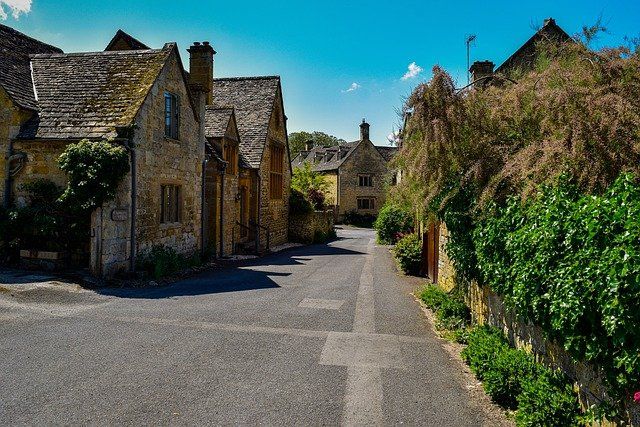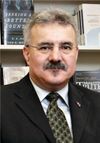John Newton (1725-1807), evangelical leader and author of the well-known hymn Amazing Grace, had opportunity to meet and hear many of the leading Evangelicals of his day. It is intriguing, therefore, to read some remarks that he penned in his diary on 7 August 1776 after he had heard a sermon by a country Baptist preacher called Benjamin Beddome (1717-1795).
Beddome’s text on that particular occasion was Zechariah 11:12: ‘And I said unto them, If ye think good, give me my price; and if not, forbear. So they weighed for my price thirty pieces of silver’. The same verse is cited in the Gospel of Matthew concerning the amount of money Judas Iscariot received for the betrayal of Christ. ‘He is an admirable preacher’, Newton observed, after hearing a sermon ‘simple, savoury, weighty’.
This was not the first time that Newton had heard Beddome preach. The Anglican Evangelical had heard him speak the previous year, on 2 Corinthians 1:24. Of that occasion Newton later recorded: ‘[the sermon] gave me a pleasure I seldom find in hearing. It was an excellent discourse indeed, and the Lord was pleased to give me some softenings and relentings of heart’.
For one who had often heard the greatest preacher of the day, George Whitefield (1714-1770), these words were high praise indeed. But who was Benjamin Beddome and why should his life be remembered today?

Bourton-on-the-Water
When Newton first heard Beddome, the latter was pastoring the Baptist church in Bourton-on-the-Water, Gloucestershire. He had been formally called to this pastorate in 1743 and would minister in this picturesque village, dubbed by some ‘the Venice of the Cotswolds’, till his death fifty-two years later.
The origins of the church that he pastored lay in the halcyon days of Calvinistic Baptist advance, during the period of the Commonwealth, when England was ruled by that quintessential Puritan, Oliver Cromwell (1598-1658).
According to the extant minutes of the Midlands Calvinistic Baptist Association, representatives of the Bourton Baptists were present at the association’s second general meeting on 26 June 1655. How long the church had existed prior to this date, however, is not exactly known. According to one account, it was founded in 1650.
Much of the story of Baptist witness in the village for the seventeenth and early eighteenth centuries is shrouded in obscurity. What we do know of the situation bears out Beddome’s description of the Bourton Baptist cause.
Before his coming to the village in 1740, Beddome described the church as one which had been ‘for a long time – unsettled and divided’. But, with his coming, the long period of uncertainty for the Baptists in Bourton was at an end.
Bristol
John Beddome (1674-1757), Benjamin’s father, was the Baptist minister of Alcester Baptist Church, Warwickshire, at the time of his son’s birth. John Beddome had come to this church in 1697 from the Baptist congregation that met in Horselydown, at Southwark, in London, where the pastor was the renowned Benjamin Keach (1640-1704), one of the seventeenth-century fathers of the Calvinistic Baptist denomination.
In an important move, the Alcester church took on Bernard Foskett (1685-1758) as co-pastor to the elder Beddome in 1711. Foskett would later became the first principal of Bristol Baptist Academy, the oldest Baptist seminary in the world and in the eighteenth century a force for much spiritual blessing among the Calvinistic Baptists. And the younger Beddome would study at this seminary in the 1730s.
In 1714 John Beddome married Rachel Brandon, a wealthy heiress and a descendant of Charles Brandon, the first Duke of Suffolk and brother-in-law to Henry VIII. Benjamin, the first of five children to survive infancy, was born three years later.
When Beddome was seven years of age, his father left the Midlands to accept a call to pastor the Pithay Church in Bristol. At the time there were two Calvinistic Baptist congregations in the city: Broadmead, where John Beddome’s lifelong friend Bernard Foskett had become pastor in 1720, and the larger Pithay Church, which contained 500 or so members in the early 1720s.
Possibly acting on the advice of Foskett, the Pithay Church approached the elder Beddome about assuming the pastorate. His acceptance in 1724 necessitated the removal of his family to Bristol in the summer of that year.
Conversion
Although Benjamin regularly sat under his father’s preaching in the Pithay as he was growing up, he showed little interest in the things of Christ, and understandably his parents were deeply concerned about his spiritual state. In fact, not until he was twenty years of age did God’s Word strike home to his heart and his parents see the fruit of many years of prayer for their son’s conversion.
On 7 August 1737, a visiting preacher to the Pithay by the name of Ware spoke on Luke 15:7: ‘I tell you that in the same way there will be more rejoicing in heaven over one sinner who repents than over ninety-nine righteous persons who do not need to repent’.
So deeply was Benjamin affected by the sermon that for some time afterwards he would be in tears while his father preached, and he would hide himself in one of the galleries so that his weeping would not be widely observed.
Pastoral ministry
Soon after his conversion Beddome was led to consider pastoral ministry. He spent a couple of years in theological training under the tutelage of Bernard Foskett. Then, in 1739, he moved to London to continue his studies at the Fund Academy in Tenter Alley, Moorfields, where a certain John Eames (d.1744) was theological tutor.
It was during this sojourn in London that Beddome became a member of Prescot Street Baptist Church, in October 1739. Early the following year the London church took steps to formally recognise God’s hand on Benjamin’s life for pastoral ministry and to set him apart for that work.
Beddome’s father was the source of much sage counsel for his son in his early life as a pastor. The younger Beddome’s preaching in his early years, for instance, was quite different from that which Newton admired in the 1770s. The tone of his preaching was often strident and harsh, and his sermons far too long.
John Beddome thus told his son in a letter that he wrote on 17 May 1742: ‘If you deliver the great truths of the gospel with calmness, and with a soft, mellow voice, they will drop as the gentle rain or dew. For the good of souls, then, and for your own good, be persuaded to strive after this’.
A few weeks later he again urged him: ‘soften your voice, and shorten your sermons – Let two hours be the longest time you spend in the pulpit at any place’!
Revival at Bourton
Beddome first visited Bourton-on-the-Water in the spring of 1740. Over the next three years he laboured with great success in Bourton Baptist Church.
Significant for the shape of his future ministry was a local revival that took place under his ministry in the early months of 1741. Around forty individuals were converted, including John Collett Ryland (1723-1791), a leading Baptist minister in the latter half of the eighteenth century – and now chiefly remembered for a stinging rebuke that he gave to young William Carey (1761-1834)!
It may well have been this taste of revival that made Beddome a cordial friend to those involved in the Evangelical Revival of the mid-eighteenth century, men like George Whitefield and the Mohegan Indian preacher Samson Occom (1723-1792).
This local awakening also gave Beddome an ongoing hunger to read of revival on both sides of the Atlantic. Within a year of the Bourton awakening, for instance, he had purchased a copy of Jonathan Edwards’ The Distinguishing Marks of a Work of the Spirit of God (1741), a treatise that would have given him a marvellous foundation for thinking about and labouring for revival.
In July 1743 the Bourton church extended an invitation to Beddome to become what they called their ‘teaching elder’. Readily acceding to their request, he was ordained on September 23 of that year.
The shape of what would be an important ministry at Bourton-on-the-Water will be examined next month.







